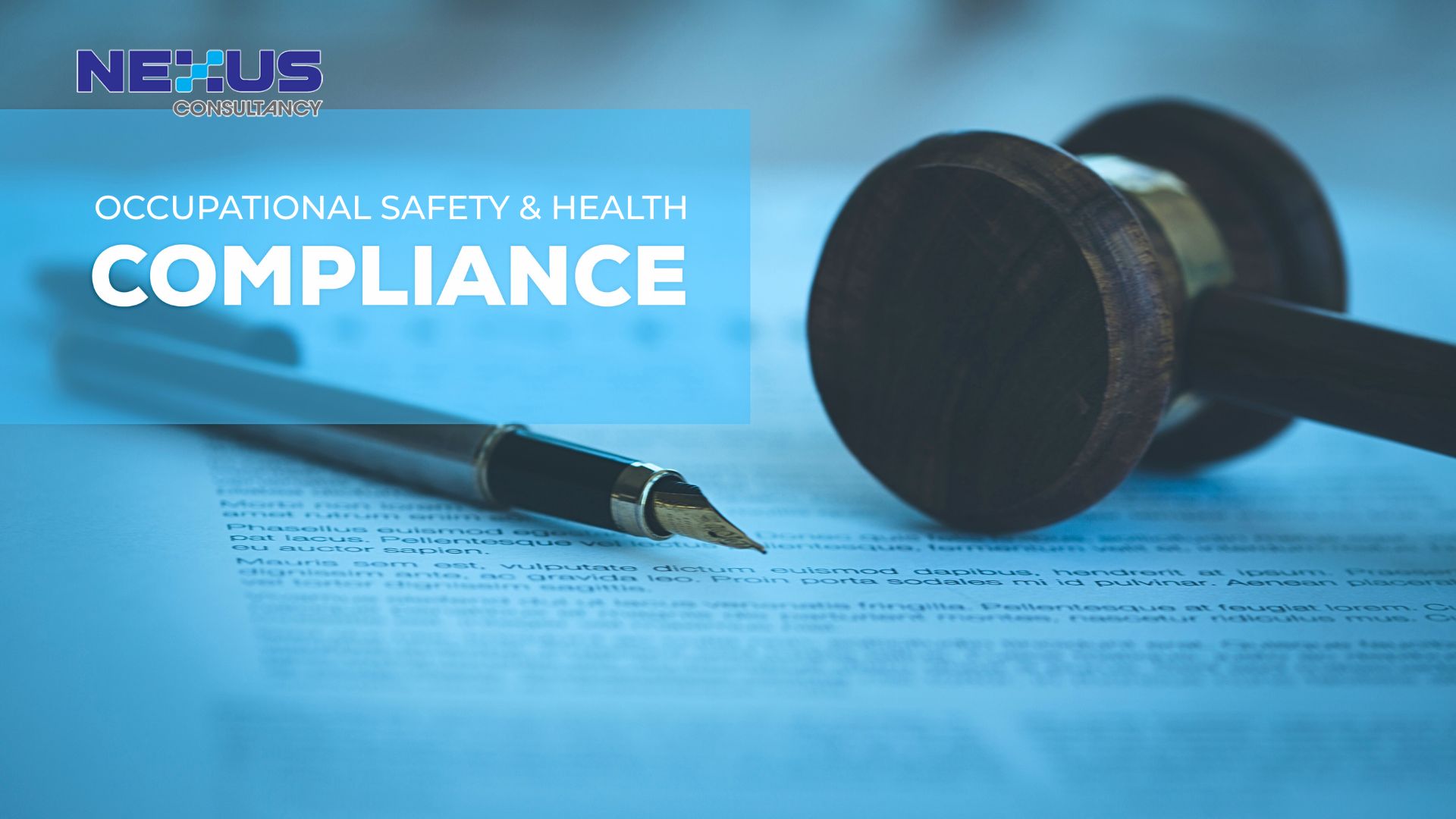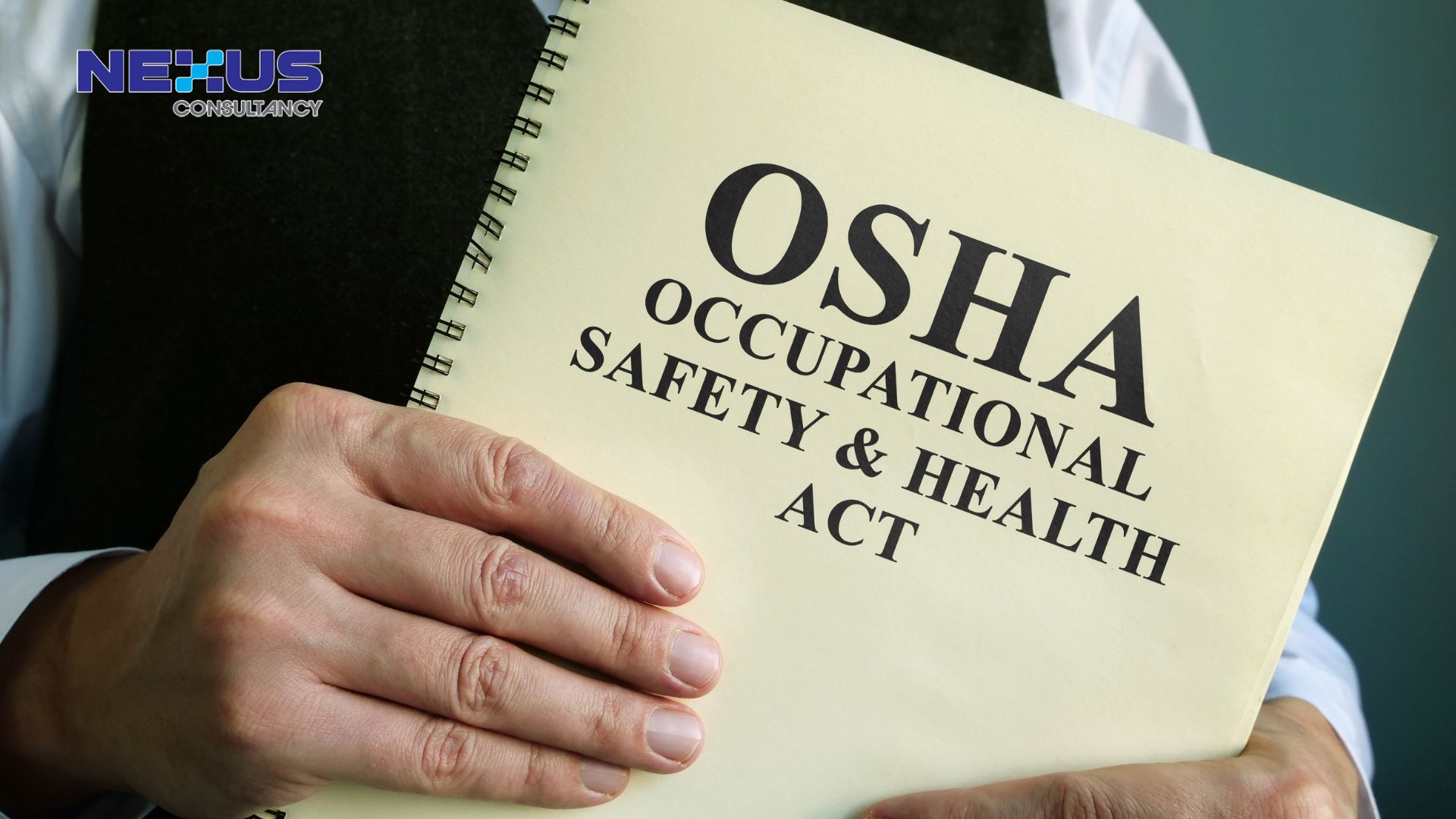
Danielle Tan
Chief Operating Officer
Attention to Manufacturers: Don’t risk RM500K fines. See the 5 biggest OSH law compliance mistakes you need to fix urgently. Stay safe, compliant, and audit-ready.

The manufacturing industry in Malaysia is the backbone of the nation’s economy—but it’s also one of the most high-risk sectors when it comes to workplace accidents and occupational hazards. With the Occupational Safety and Health Act 1994 (Act 514) and its amendments coming into sharper focus, compliance is not optional—it’s a legal obligation.
Whether you operate a small factory or manage a large-scale production plant, here are the Top 5 things every manufacturer must watch out for to stay compliant with OSH law in Malaysia.
1. Failure to Identify and Control Hazards
In a manufacturing environment, hazards can range from heavy machinery and moving parts to exposure to dust, chemicals, and extreme noise. Unfortunately, many companies underestimate the importance of hazard identification and risk assessment.
Legal Requirement:
Under Section 15 of the OSH Act 1994, employers must ensure the safety, health, and welfare of their workers by proactively identifying and controlling workplace hazards.
Key Actions:
– Conduct regular HIRARC (Hazard Identification, Risk Assessment and Risk Control)
– Implement control measures (e.g. guarding machinery, ventilation, PPE)
– Train employees to recognize hazards in their work area
2. Non-Compliance with Machine Safety Standards
Machine-related injuries are among the most common in Malaysian factories. Whether it’s a press machine, conveyor belt, or cutting tool—failure to install proper safeguards can lead to serious accidents.
Legal Requirement:
Regulation 5 of the Factories and Machinery (Fencing of Machinery) Regulations 1970 mandates that all dangerous parts of machinery be securely fenced or guarded.
Key Actions:
– Install emergency stop systems and interlocks
– Regularly inspect machinery and fix worn-out parts
– Ensure only trained personnel operate machinery
3. Poor Chemical Handling and Storage
Many manufacturers use hazardous chemicals for cleaning, processing, or maintenance. Improper handling and storage can lead to chemical spills, fires, or toxic exposure—putting both workers and the environment at risk.
Legal Requirement:
Employers must comply with the USECHH Regulations 2000 (Use and Standards of Exposure of Chemicals Hazardous to Health), which require proper labeling, storage, usage, and exposure monitoring.
Key Actions:
– Label all chemicals according to GHS (Globally Harmonized System)
– Maintain Chemical Register and CHRA (Chemical Health Risk Assessment)
– Provide proper PPE and first aid for chemical exposure
4. Lack of Safety and Health Committee
A common oversight in manufacturing plants is the absence of an active Safety and Health Committee. This is especially critical in factories with high headcounts and operational risks.
Legal Requirement:
Under the Occupational Safety and Health (Safety and Health Committee) Regulations 1996, factories with 40 or more workers are legally required to form this committee.
Key Actions:
– Appoint equal representation from both employer and employee sides
– Conduct regular safety meetings and site inspections
– Review incidents and recommend preventive actions
5. Failure to Report Workplace Accidents
Workplace incidents—whether minor injuries or major accidents—must be reported to the Department of Occupational Safety and Health (DOSH). Many factories fail to do this on time, risking penalties and non-compliance status.
Legal Requirement:
The Notification of Accident, Dangerous Occurrence, Occupational Poisoning and Occupational Disease Regulations 2004 requires:
– Immediate notification of fatalities and serious injuries
– Reporting of any dangerous occurrence, occupational disease, or poisoning
Key Actions:
– Train supervisors to identify reportable incidents
– Use the JKKP 6 form for reporting accidents
– Maintain an up-to-date Accident Logbook
Why Compliance Matters More Than Ever
With the OSH (Amendment) Act 2022, penalties for non-compliance have increased dramatically—up to RM500,000 in fines and jail terms for key decision-makers. But beyond the legal risk, OSH compliance in manufacturing helps companies:
– Reduce injury and downtime
– Improve productivity and morale
– Lower insurance premiums
– Enhance brand reputation and investor confidence
– Align with ESG (Environmental, Social, Governance) standards

Final Thoughts
The manufacturing sector has unique OSH risks that require a systematic, proactive approach to compliance. From machine safety and hazard control to chemical handling and incident reporting, manufacturers must stay informed and act decisively to meet the requirements of Malaysia’s OSH laws.
If you’re unsure whether your factory is compliant, consider conducting a gap analysis or OSH compliance audit. Safety isn’t just about meeting legal standards—it’s about building a resilient, people-first organization.
Ready to Take the Next Step?
Our team of experienced OSH compliance consultants specializes in helping manufacturing companies in Malaysia strengthen their workplace safety programs. Whether you need a manufacturing safety consultant to guide your team, or professional support for an OSH gap analysis service, we are here to assist you.






